2108 - Family School Partnership Act
Category
Leave
Audience List
- Employee Relations Officers
- Labor Relations Officers
- Personnel Officers
Synopsis
This policy
- Explains the time off requirements employers are required to provide for employees so they may attend activities related to child education, childcare, and school emergencies.
- Provides guidance on time allotted for the purpose of attending approved child-related activities.
- Provides notice requirements for the employee when requesting the time off.
- Provides the potential penalty for employers that violate the provisions of the statute.
Introduction
The provisions in California Labor Code section 230.8 allow eligible employees to take time off for child-related activities in the areas of education, licensed child care, and school emergencies. The MOU should always be the first resource used to reference this leave. If silent, information can be found in the Labor Code section 230.8 below.
Statement
Employers with 25 or more employees working in the same location are required to allow an employee who is a parent of one or more children of the age to attend kindergarten or grades 1 to 12, or a licensed child care provider, up to 40 hours each school year for the purpose of either of the following child-related activities:
- To find, enroll, or reenroll his or her child in a school or with a licensed child care provider, or to participate in activities of the school or licensed child care provider of his or her child.
- To address a child care provider or school emergency, if the employee gives notice to the employer.
Parent means a parent, guardian, stepparent, foster parent, or grandparent of, or a person who stands in loco parentis to, a child. Child care provider or school emergency means that an employee’s child cannot remain in a school or with a child care provider due to one of the following:
- The school or child care provider has requested that the child be picked up, or has an attendance policy, excluding planned holidays, that prohibits the child from attending or requires the child to be picked up from the school or child care provider.
- Behavioral or discipline problems.
- Closure or unexpected unavailability of the school or child care provider, excluding planned holidays.
- A natural disaster, including, but not limited to, fire, earthquake, or flood.
Prior to taking time off for planned absences, the employee must give the employer reasonable notice. Time off for this purpose is limited to eight hours in any calendar month of the year. If both parents are employed at the same worksite, only one must be allowed to attend, but both may attend with the employer’s approval.
The employee shall use existing vacation, personal leave, or compensatory time off for purposes of the planned absence. An employee also may utilize time off without pay for this purpose, to the extent made available by his or her employer. The entitlement of any employee under this section shall not be diminished by any collective bargaining agreement term or condition that is agreed to on or after January 1, 1995. Any dispute resulting from the denial of leave to a represented employee is subject to the grievance and arbitration process specified in the appropriate Memorandum of Understanding. A dispute of an excluded employee should be directed to the Department of Industrial Relations.
If requested by the employer, an employee shall provide documentation from the school or licensed child care provider as proof that he or she engaged in child-related activities permitted on a specific date and at a particular time.
Any employee who is discharged, threatened with discharge, demoted, suspended, or in any other manner discriminated against in terms and conditions of employment by his or her employer because the employee has taken time off to engage in permitted child-related activities shall be entitled to reinstatement and reimbursement for lost wages and work benefits caused by the acts of the employer. Any employer who willfully refuses to rehire, promote, or otherwise restore an employee or former employee who has been determined to be eligible for rehiring or promotion by a grievance procedure, arbitration, or hearing authorized by law shall be subject to a civil penalty in an amount equal to three times the amount of the employee’s lost wages and work benefits.
Application
Not Applicable.Authorities
Resources
PML
- PML 1995-026: PML 1995-026 - 5/11/1995 - Family School Partnership Act
- PML 1996-061: PML 1996-061 - 12/11/1996 - Family School Partnership Act
- PML 1998-009: PML 1998-009 - 2/18/1998 - Family School Partnership Act
Authorized By
Melissa Russell
Chief
Personnel Management Division
Contact Person
Personnel Services Branch
Personnel Program Consultant
, Personnel Services Branch
Phone: 916-909-3702
Fax: 916-327-1886
Email: psb@calhr.ca.gov
Superseded Policies
Not Applicable.History
Please note that some PDF Forms may not be opened directly in your browser. These PDF forms may be downloaded and saved to your computer to be opened with Adobe Reader.
